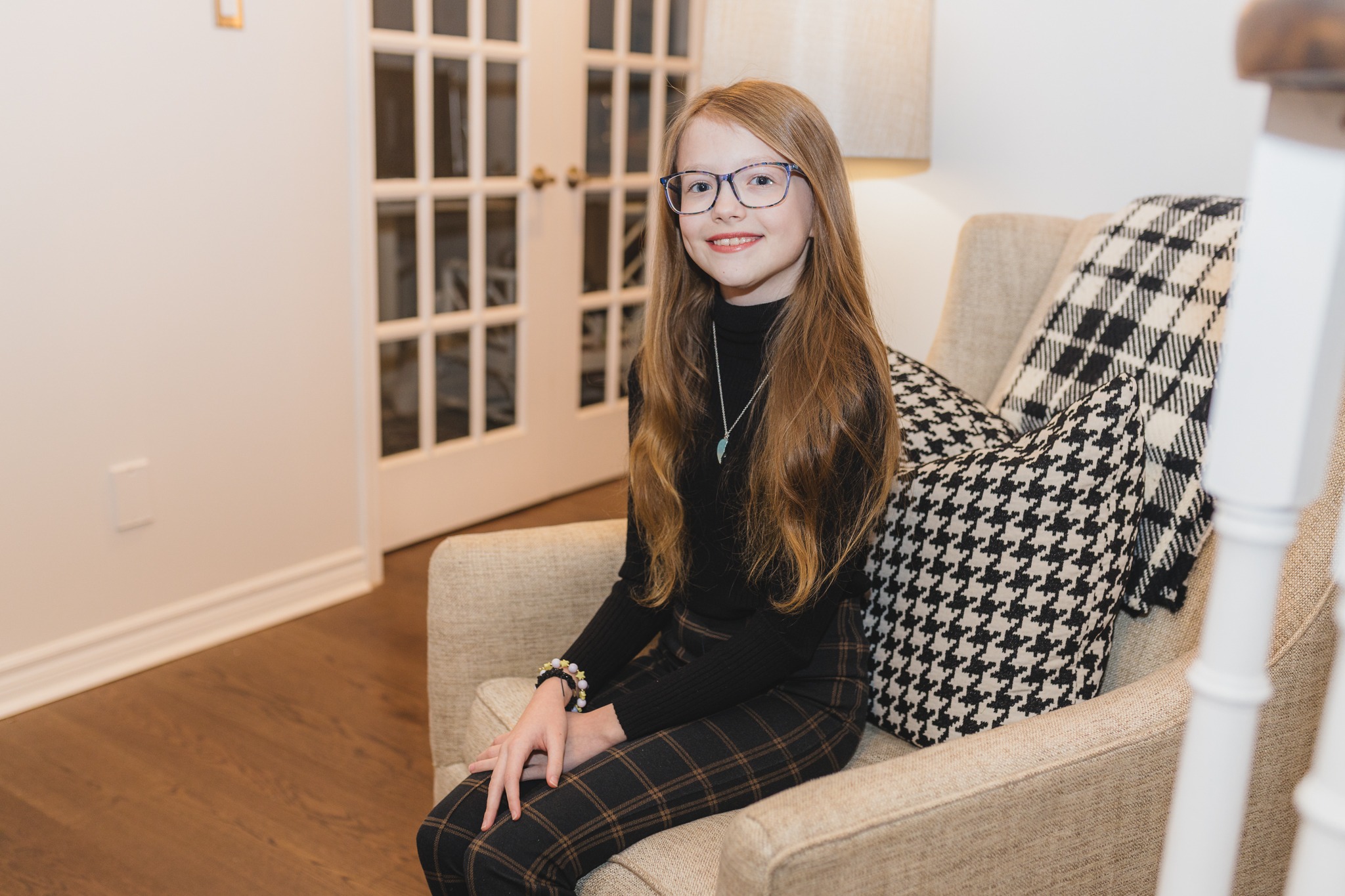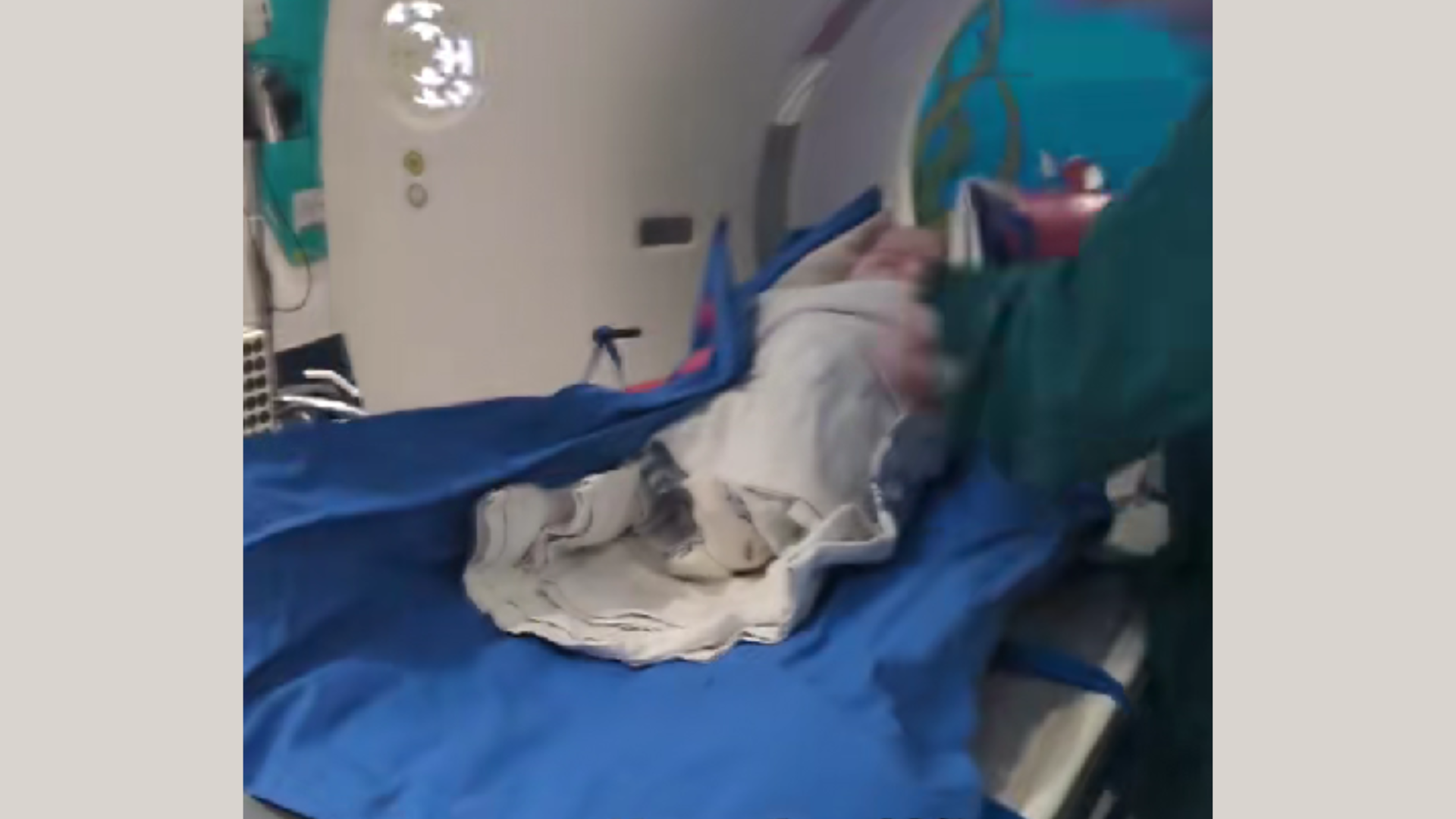How the NWT is trying to win the battle for oral health

Hundreds of children in the Northwest Territories require dental surgery with general anesthetic each year. New programs are trying to change that.
For the past year, Sara Musson has been the NWT’s new oral healthcare specialist. It’s her job to devise and implement programs that help people – particularly the young and elderly – look after their teeth.
She’s focusing on making brushing fun, and educating parents, to try to turn around the territory’s oral health.
“The Northwest Territories is the second-worst, behind Nunavut, for oral care in Canada,” says Musson.
Advertisement.
Advertisement.
Among the territory’s Indigenous children, she adds, 17 in every 20 have dental decay, and in half of those cases that decay is untreated.
In an average year, more than 200 NWT children aged just three to five will need dental surgery requiring general anesthetic.
“Children with poor oral health are twice as likely to perform poorly at school [and] pain is a big factor,” says Musson.
“It’s not only their health that is suffering, it’s their education too.”
Advertisement.
Advertisement.
‘Being at the daycare is helping’
Now, the territory is actively targeting children aged up to Grade 6 with tactics ranging from books and apps to in-school brushing and more communication with parents.
Adama Stevens, Inuvik’s dental therapist, has been in the community for the past eight years. She came to Canada when war struck her home country of Sierra Leone, and trained in Saskatchewan before heading North.
“I have noticed great improvement in the oral care of the children,” she says.
“Before, I used to just work with the children in the elementary school here. But then I found how serious the problem was and I thought, if I start with the daycare children – if they already form good habits – then it will minimize the dental problems.”
Now, even children at the daycare get daily help with brushing, just as students at East Three elementary school do.
Stevens also attends the local healthy baby program to talk directly to parents about the importance of their child’s oral health, and occasionally sets up a booth inside the Northern store to meet people one-to-one, hand out toothbrushes and toothpaste, and run draws where residents can win fruit and vegetable baskets.
“Being at the daycare, talking to parents, and doing daily promotion at the school is helping a lot,” she says.
“For us, the challenge is to be able to get the reinforcement at home, which means reaching out to the parents. That’s why I’m happy with the healthy baby program – I get to give a talk to the parents when they go with their babies.”
Advertisement.
Advertisement.
What you can do
Asked what parents can do to help their children’s oral health, Musson and Stevens have this advice:
Go to the health checks for your baby
“From immediately after the child is born, they have checks at regular intervals at the health centre, so we’ve incorporated an oral health assessment into that,” says Musson.
“They’ll lift the lip to just have a look at the teeth – the community health representatives have been taught how to look for early signs of decay starting in kids’ teeth.
“They’ll talk about nutrition, how to care for your child’s teeth, and the importance of things like not doing what they call bottle propping, where you put a baby to bed with a bottle of milk and let them sleep with the bottle in their mouth.”
Sign the consent form for the dental therapist
“When a child starts preschool or if they go into a Head Start, that’s where they’ve got dental therapists in the communities,” says Musson.
“The therapists go into the nurseries, they do tooth brushing programs, and varnish is a big thing. Most NWT communities don’t have fluoridated water, so the fluoride varnish is an important aspect. It’s a varnish that gets painted over the teeth and helps to prevent cavities from forming – it’s a really tiny amount of fluoride and can be done twice a year.
Advertisement.
Advertisement.
“One of the really big things – if your kid is at school in one of the regions that has a dental therapist – is to sign the consent form for the program. Because they will help you in looking after your child’s oral health care needs the whole time during the school year.”
Make two minutes of brushing fun
Stevens has a game she plays with her own two children.
“If they go and brush without me reminding them, they get a checkmark for that day,” she says. “At the end of the week, I count how many checkmarks, and that can translate into something simple, a little prize. That makes them want to remember to brush.”
Musson says the NWT Health and Social Services Authority is working to help parents make brushing more interesting.
“We’re producing books, little songs that they can sing along to,” she says. “There’s an app that you can get as well – Colgate put out a great app that has songs and things that you can do that actually last two minutes, because kids should brush twice a day for two minutes.
“Anything that drags their attention into what they’re doing.”
Don’t think ‘they’re just baby teeth’
Advertisement.
Advertisement.
Musson says: “General anesthetic doesn’t come without risks, and it’s important to explain what the long-term effects are of a young child losing their teeth, and how that will impact them in the future.
“A lot of people will say, ‘Oh, it’s only baby teeth, new teeth will grow in.’ Yes, new teeth will grow in, but the baby teeth play an enormous role because they help with speech, and with eating.
“And they actually form how teeth are going to erupt into the mouth afterwards.”
Musson worked in the dental branch of the British military for two decades before coming to Canada. She got her job after the territorial government concluded oral healthcare required “immediate attention” across the NWT.
To determine how things change, her federally funded, five-year program will track how many children in the NWT require dental surgery with general anesthetic.
“The hope is that the number will go down,” she says, “but it may go up slightly in the first year or so, because we’re bringing more awareness – so more kids are getting seen at different stages where they wouldn’t get seen before.
“More referrals may mean more kids in the first year. The hope is that it might go up and then drop back down again, as we catch those.”
This article appears through a paid partnership with the territorial government, and does not form a part of Cabin Radio’s editorial news coverage.
Related Articles
link




:max_bytes(150000):strip_icc()/asian-sick-little-girl-lying-in-bed-with-a-high-fever-952683074-5b5b784046e0fb005027ca13.jpg)


